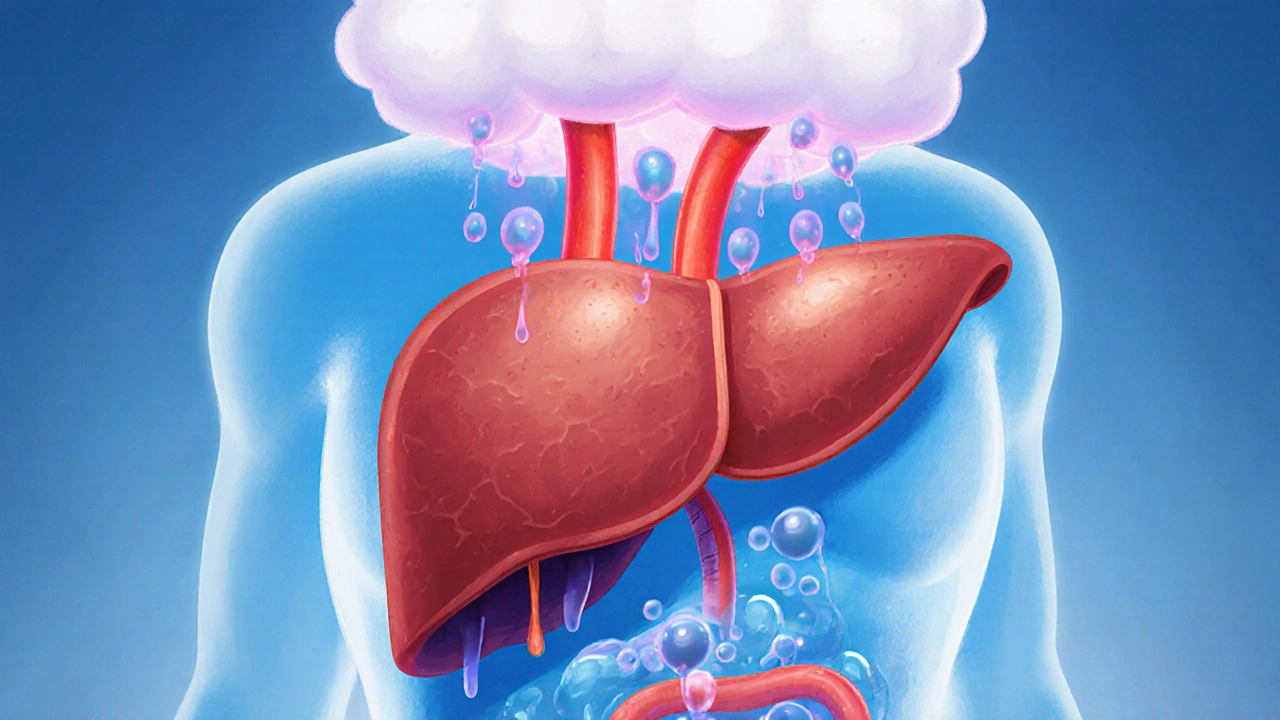Ascites: Causes, Treatments, and What You Need to Know
When your belly swells without explanation, it’s often ascites, the abnormal buildup of fluid in the abdominal cavity. Also known as peritoneal fluid accumulation, it’s not a disease itself—it’s a sign something deeper is wrong. Most commonly, it’s tied to liver disease, especially cirrhosis from long-term alcohol use or hepatitis. But it can also come from heart failure, kidney issues, or even certain cancers. The fluid doesn’t just make you look bigger—it presses on your organs, makes breathing hard, and can lead to infection if ignored.
What happens inside your body? Your liver stops making enough protein, so fluid leaks out of blood vessels into your belly. Your kidneys then hold onto salt and water instead of flushing it out, making things worse. That’s why diuretics, medications that help your body get rid of extra fluid like spironolactone and furosemide are the first line of defense. But they don’t fix the root cause. If you’re drinking too much alcohol, stopping is the only real solution. If your liver is failing, you might need a transplant. And if cancer is behind it, treatment shifts to managing that disease instead.
It’s not just about pills. Reducing salt intake is critical—eating even one bag of chips can undo weeks of progress. Drinking less water won’t help; your body needs hydration. But cutting sodium? That’s non-negotiable. Many people with ascites also deal with edema, swelling in the legs and ankles, because the same fluid imbalance affects the whole body. Doctors may drain fluid with a needle if it’s severe, but that’s a temporary fix. The goal is always to treat what’s causing it, not just the swelling.
You’ll find posts here that dig into how medications like Lasix help manage fluid, why potassium matters to balance out diuretic side effects, and how conditions like liver cancer or heart failure connect to this buildup. Some articles compare treatments, others warn about hidden risks—like how certain painkillers can make ascites worse. Whether you’re dealing with this yourself or caring for someone who is, the goal is the same: understand the cause, manage the symptoms, and know when to push for more help.

